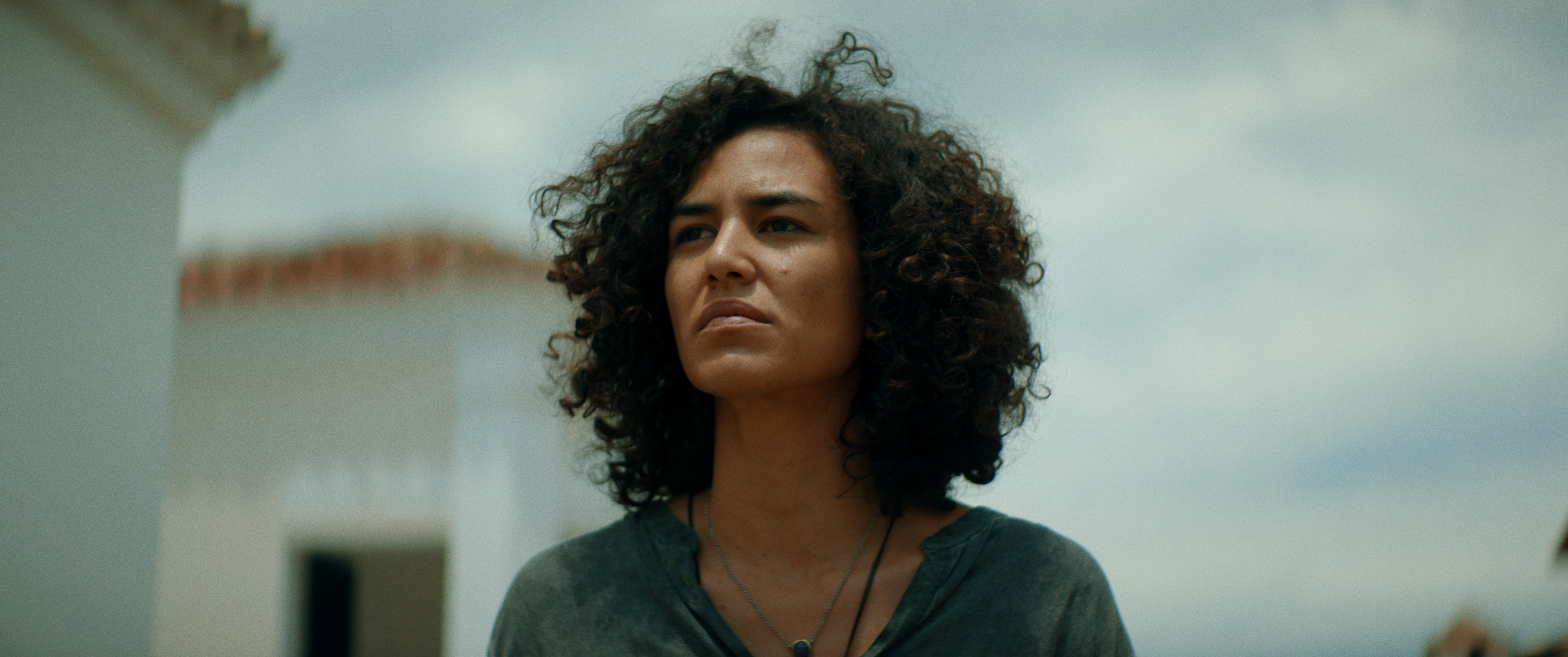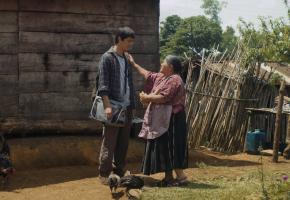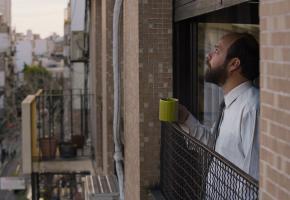Bárbara Colen as Fernanda
Flávia Neves touches on many layers still prevalent in some areas of Brazilian society. Some are autobiographical, some just unresolved and toxic layers of race and class that enable those on top, to abuse and disrespect those who are perceived to be below: the invisible ‘untouchables’ of Brazil. Neves exposes the ruthless attitude of some people, who, being not only large and powerful landowners, also dominate the political arena by becoming councillors and mayors. Thus, in the name of respectability and with the assistance of local religious orders, they control whole areas with impunity, protecting their position and wealth. This level of power stretches its tentacles further however, as landowners try to deny the local indigenous people water rights to rivers in their own reservations. There are layers up on layers to peel back in this film.
Set in Goiás, in central Brazil, ‘Fogaréu’ is named after the “Procissão do Fogaréu’ a solemn and silent Easter procession in the town of São Vicente de Paulo of Goiás, where volunteers, with their fiery torches, pound the streets at night following a floats of religious significance.
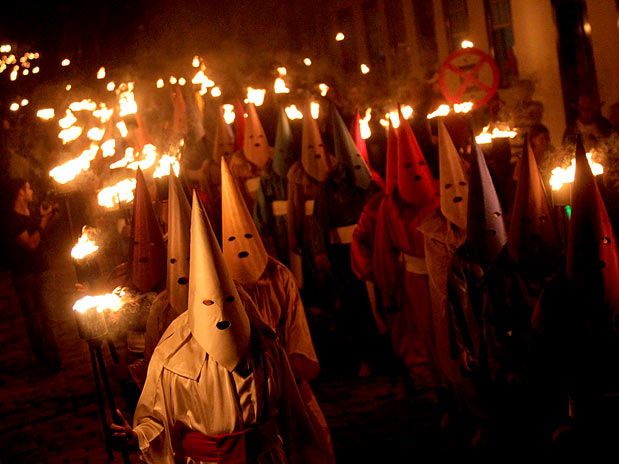
“Procissão do Fogaréu"
The film has echoes of the typical scenario of many a ‘western’, where one wealthy landowning family rules with minimal opposition, just like in colonial times. The film focusses on an area of Brazil that has not figured much in films, despite its importance in economic and political terms. There, we find a dog-eat-dog society, where violence and money speak.
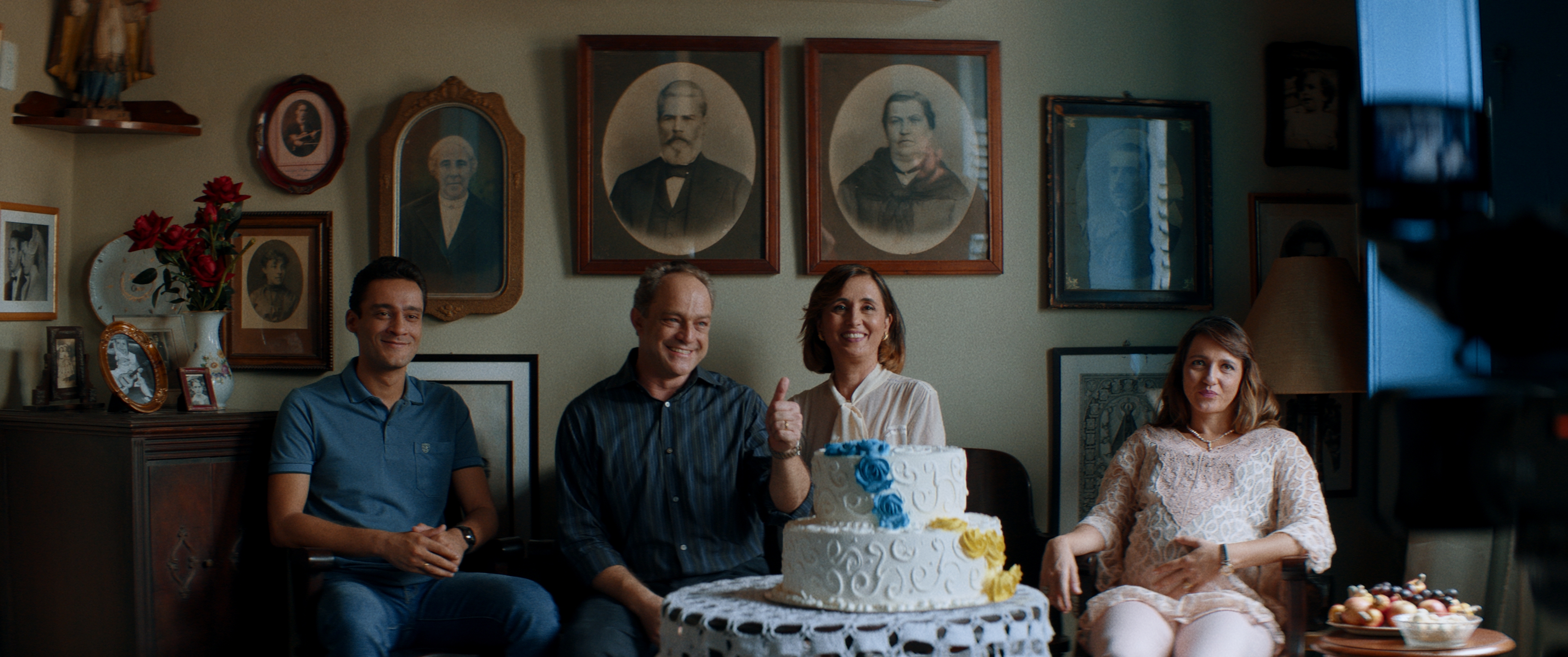
Menezes family
However, with the intricacies of her storylines, Neves also boldly questions the role that women and religious orders play in this macho-orientated society. The film opens with a new-born child being unceremoniously taken away by nuns, against her will, from its distraught mother. This sets the chilling tone of the film.
Fernanda (Bִárbara Colen), who has been living in a freer, more liberal environment for many years, returns, to scatter her adoptive Lesbian mother’s ashes at the family ranch. When she arrives in Goiás one night, at the height of Holy Week, looking modern and out-of-place in this medieval environment, she weaves her way through the torch-bearing crowds of penitents, in their ominous KKK reminiscent garb, on her way to meet her uncle Antônio Menezes (Eucir de Souza), landowner and mayor.
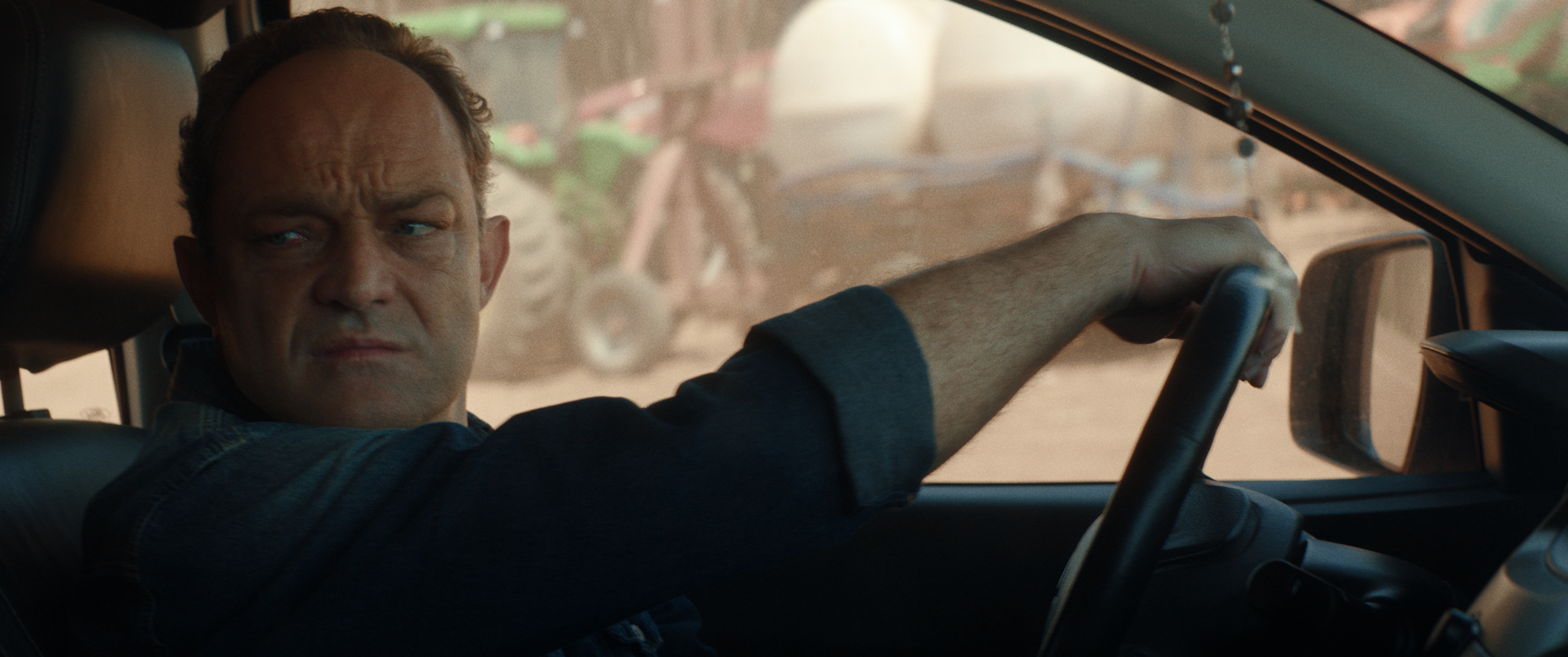
Eucir de Souza as Antônio Menezes
At the family home, Fernanda’s presence is resented, let alone her rights to a place in the family or any inheritance. The rejections reawakens Fernanda’s wish to discover exactly who she is and where she came from. Her attempts to find her birth registration at the ‘local mental asylum’ fail, and there is an overly harsh refusal of help from her family. Fernanda then decides to probe among the locals. In particular, she talks to the ‘invisible’ and virtually enslaved maids at her uncle’s house, who give her a beautifully quilt they embroidered that proves to be revelatory. With mind-reading persons and a mysterious observer, mad-wise man, Ezequiel (Timothy Wilson), Neves adds a touch of magic and fantasy.
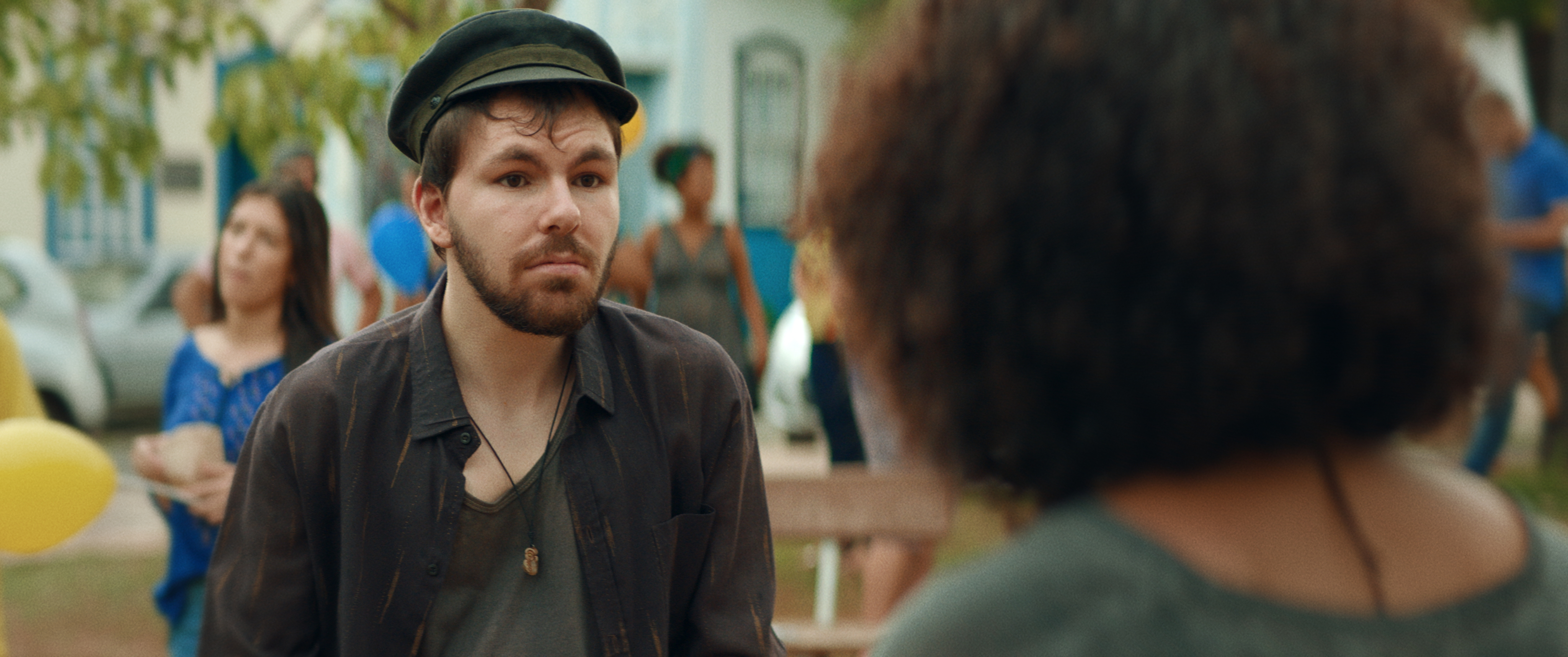
Timothy Wilson as Ezequiel
As Flávia Never points out, in that area, it is acceptable for families to ‘adopt’ children, with the illusion of giving them affection and treating them as their own, while all the time callously reminding them that they have been ‘saved from misery’ and must work. This is exceptionally cruel, because, in reality, it was for their own advantage to have virtual slaves as servants.

Vilminha Chaves as Joana with Bárbara Colen as Fernanda
At the family house, Fernanda is warned off vying for any inheritance, with oblique references to ‘fruits’ of which you can only eat the area near the peel, as there are ‘spikes’ within, so Antônio remarks : ‘sometimes it’s better to remain on the surface and not to dig too deep.’
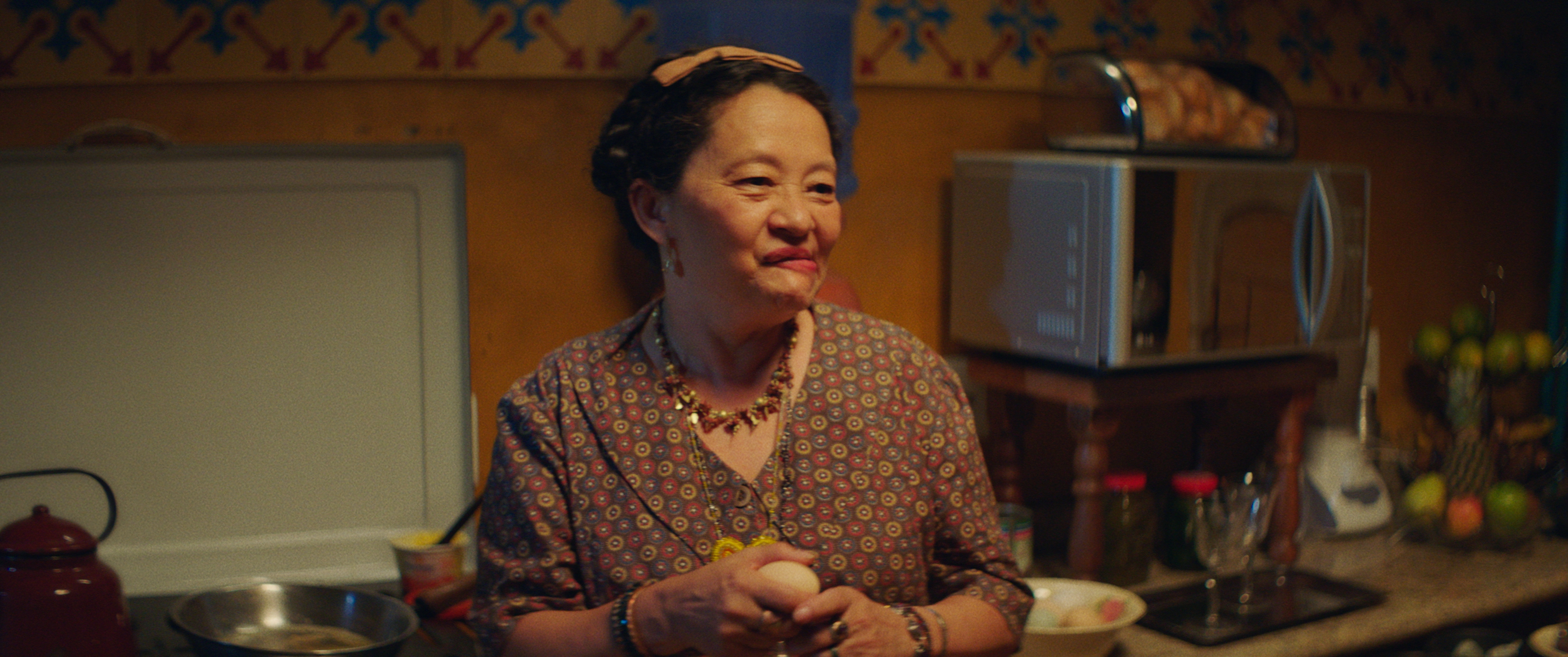 Nena Inque as Ocinha ( Missy)
Nena Inque as Ocinha ( Missy)
But Fernanda digs all the same and dark truths begin to emerge. She befriends the maid ‘Mocinha’ (Missy, played by Nena Inque), and uncovers secrets of how neuro-diverse people are treated, with evidence of rape, physical abuse, inbreeding, and how the rich conspire with each other with no qualms for the damage they wreak on others. Fernanda realizes how the ‘bobas’ (simple, or mentally-challenged women), largely born at the local ‘asylum’, are used, and abused, as domestic servants.
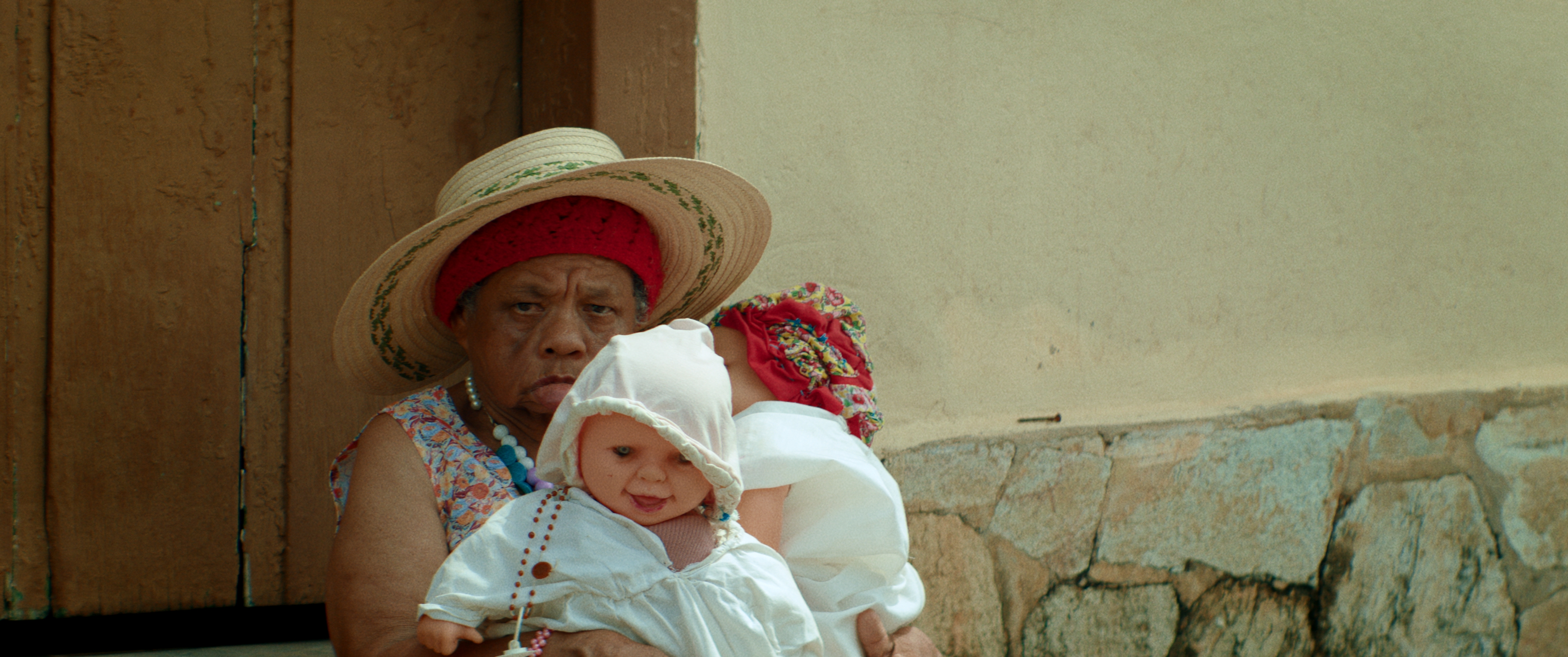
Village 'boba' (simple- minded person).
Meanwhile, within the family, tensions are running high. The pregnant daughter Paula (Fernanda Pimenta) talks about living in hell, the campaign for mayor is in full swing and the threat of scandal is too close. Fernanda is playing with fire and suffers the consequences.

Flávia Neves
To emphasize the difficulties still experienced in Brazil as a woman film-maker, Neves deliberately chose a largely feminine crew, including producers Vania Catani and Mayra Faour Auad, cinematographer Luciana Bassaggio and co-writer Melanie Dimantes, to name a few. Neves also made a point of casting neuro-diverse actors and she found they were very gifted and an asset to the production.
This is an accomplished first feature, so we look forward to Flávia Neves next project, in which she will challenge environmental issues with a sci- fi project, set in a post-apocalyptic Brazil, that is suffering from the aftermath of terrible deforestation
Fogaréu (2020) . Directed by Flávia Neves. Writers: Flávia Neves and Melanie Dimantes/ Producers Vania Catani and Mayra Faour Auad/ Cinematographer Luciana Bassaggio/ Editor: Will DFomingos and Waldir Xavier/
CAST: Fernanda: Bárbara Colen/ Mocinha: Nena Inque / Joana Vilminha Chaves / Antônio: Eucir de Souza / Ezequiel: Timothy Wilson.
Filmed in São Vicente de Paulo, Goiás, Brazil.


